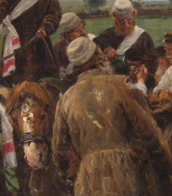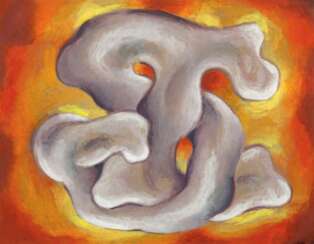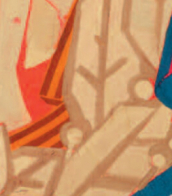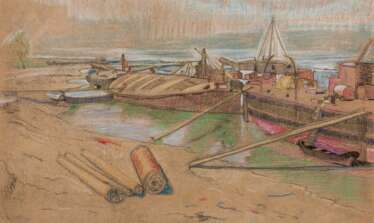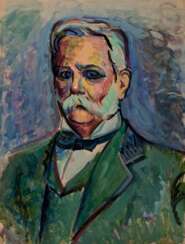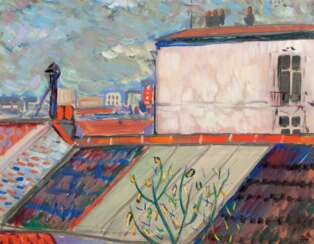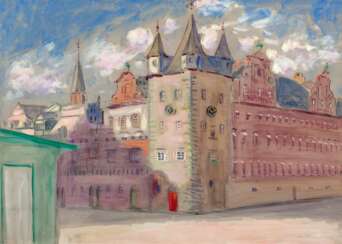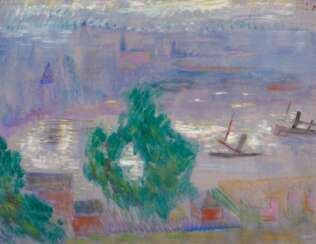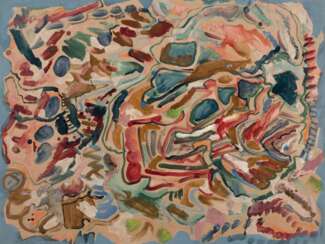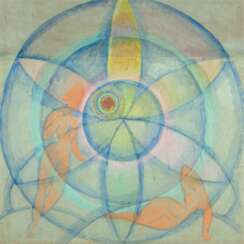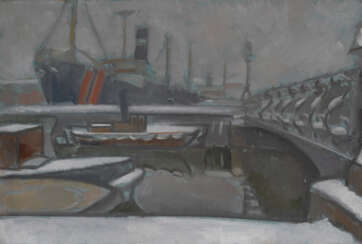vladimir davidovitch baranov-rossiné (1888 - 1944)
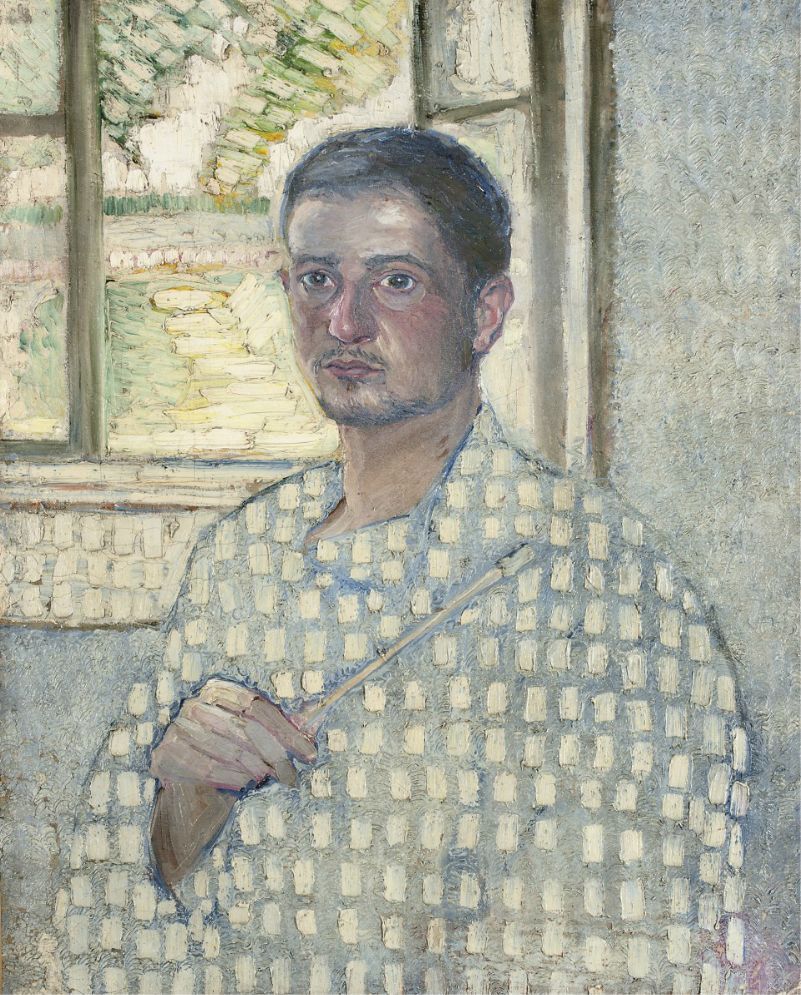
Vladimir Davidovich Baranov-Rossine (Russian: Владимир Давидович Баранов-Россине) was a master of the Russian avant-garde, a prolific painter, sculptor, and inventor, whose work significantly contributed to the Cubo-Futurism movement. Born on January 1, 1888, in Kherson, he was originally named Shulim Wolf Leib Baranov but is best known by his pseudonym, Daniel Rossine. His early artistic education took place in Odessa and then at the St. Petersburg Academy of Arts, laying the groundwork for his future as a revolutionary artist.
In 1910, Baranov-Rossine moved to Paris, a pivotal move that introduced him to the burgeoning European avant-garde scene. It was there, alongside other notable artists such as Marc Chagall, Osip Zadkine, Alexander Archipenko, and Chaim Soutine, that he became an inhabitant of the famous Parisian house "La Ruche." His innovative work, particularly the invention of the Optophonic Piano, which projected colors in sync with music, underscored his commitment to blending art and technology, a hallmark of his career.
Tragically, Baranov-Rossine's life was cut short when he was arrested by the Gestapo in 1943 and subsequently died in Auschwitz in 1944. Despite his untimely death, his legacy lives on through his contributions to modern art and technology. His works can be found in various museums and galleries, celebrated for their vibrant expression and avant-garde techniques that continue to inspire artists and collectors alike.
For those intrigued by Vladimir Davidovich Baranov-Rossine's pioneering work and its lasting impact on the art world, signing up for updates on new product sales and auction events related to this avant-garde master is highly recommended. This ensures enthusiasts and collectors are always informed about the latest opportunities to engage with Baranov-Rossine's remarkable legacy.
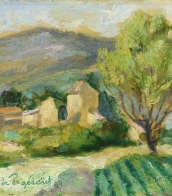

Vladimir Davidovich Baranov-Rossine (Russian: Владимир Давидович Баранов-Россине) was a master of the Russian avant-garde, a prolific painter, sculptor, and inventor, whose work significantly contributed to the Cubo-Futurism movement. Born on January 1, 1888, in Kherson, he was originally named Shulim Wolf Leib Baranov but is best known by his pseudonym, Daniel Rossine. His early artistic education took place in Odessa and then at the St. Petersburg Academy of Arts, laying the groundwork for his future as a revolutionary artist.
In 1910, Baranov-Rossine moved to Paris, a pivotal move that introduced him to the burgeoning European avant-garde scene. It was there, alongside other notable artists such as Marc Chagall, Osip Zadkine, Alexander Archipenko, and Chaim Soutine, that he became an inhabitant of the famous Parisian house "La Ruche." His innovative work, particularly the invention of the Optophonic Piano, which projected colors in sync with music, underscored his commitment to blending art and technology, a hallmark of his career.
Tragically, Baranov-Rossine's life was cut short when he was arrested by the Gestapo in 1943 and subsequently died in Auschwitz in 1944. Despite his untimely death, his legacy lives on through his contributions to modern art and technology. His works can be found in various museums and galleries, celebrated for their vibrant expression and avant-garde techniques that continue to inspire artists and collectors alike.
For those intrigued by Vladimir Davidovich Baranov-Rossine's pioneering work and its lasting impact on the art world, signing up for updates on new product sales and auction events related to this avant-garde master is highly recommended. This ensures enthusiasts and collectors are always informed about the latest opportunities to engage with Baranov-Rossine's remarkable legacy.
